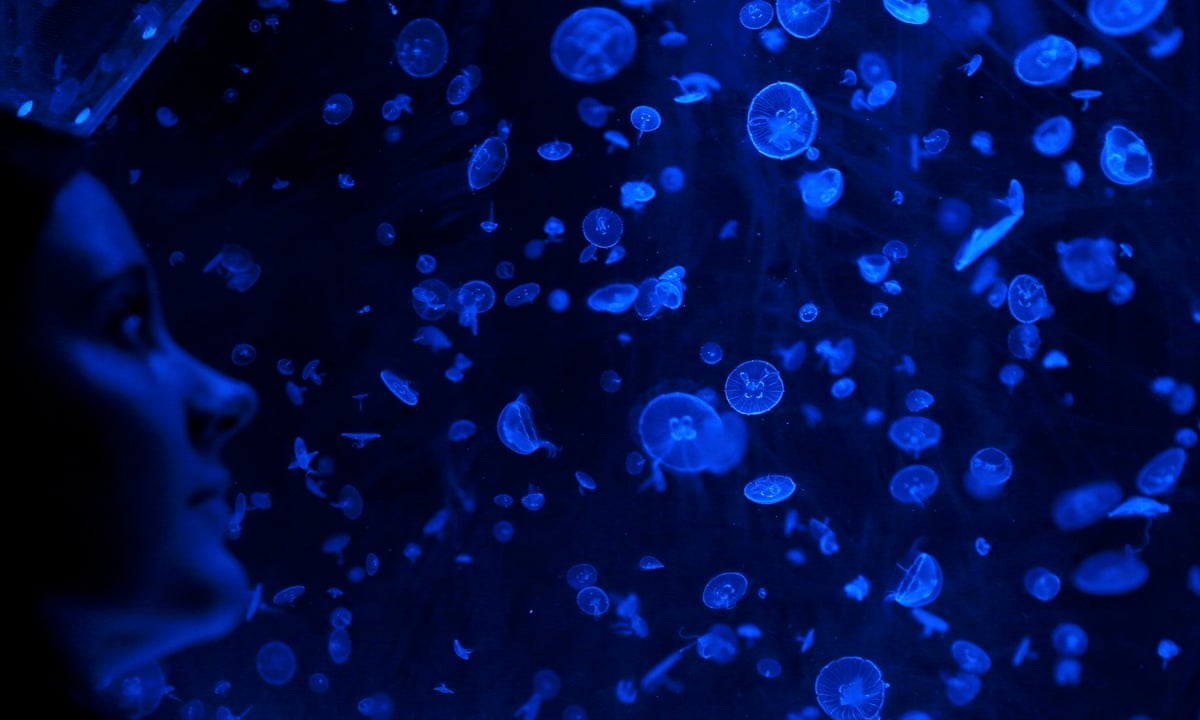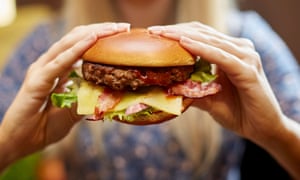Dean Burnett: Would you be willing to eat a jellyfish? Even if youre vegetarian, you might want to consider it.

Would you gobble a jellyfish? The most likely react would be no; they gaze outraging. And theyre possibly poisonous. Shall I wash it down with a neat glass of chilled urine? But, unavoidably, some people do eat them. They might even enjoy them, the maniacs.
But Cnidaria cookery procedures aside, consider this; would it be OK for a vegetarian to snack jellyfish? If not, why not?
A lot of parties are adopting a vegan diet this January, and more ability to them. Their motivatings may run( for donation, for the health benefits etc .) but its still a big wrench, to remove a enormous swathe of selection from your daily diet.
To clarify, Im not vegan myself, or vegetarian. I do like flesh, and I simply scarcity the firmnes to cut myself off from it solely. As a develop, I have a lot of respect for those who do manage it. But as anyone whos heard the phrase Im a vegetarian, except in cases of fish will have realised, there are different levels of has pledged to vegetarianism, and beings differ wildly on what the fuck is consider acceptable or not.
Part of this is likely to arising as a result of the differ motivations for being vegetarian/ vegan in the first place. Some do it for religious intellects, so what you snack is determined by your holy text or scripture etc. Restrictive perhaps, but at least you know where you stand. Other people simply dont like meat, or are intolerant to it or other animal produces , so only avoid them wholly. In this case, its your immune plan that defines your diet.
There are also resonated environmental grounds. While there are concerns over the environmental impacts of popular vegetarian-friendly essences like palm petroleum, the environmental cost of flesh product is undeniable, and overwhelming.
But numerous parties borrow vegetarianism/ veganism for moral and ethical grounds, which is fair enough. Objecting to swine being killed or suffering for our nutrient is a perfectly logical stance. But when you get down to the actual scientific minutiae of what these things signify, then it starts to get perplexing.
This brings us back to the jellyfish question; would it be safe for a vegetarian to eat one? If youre vegetarian for environmental rationales, it may even be better to gobble jellyfish, thrown how abundant they are without any need for harmful human farming. But what about ethical concerns? While technically categorized as swine, they are devoid of any brain or nervous system, and most cant even restrict where they move. Everything we know about neuroscience suggests such a mortal would be totally incapable of comprehending anything as complex as torment or inconvenience, and it certainly wouldnt be able to experience any emotional reaction to such its own experience. So by dining one , no torment can be said to have occurred. It may still be a living thing, but then so is a carrot. Why is one OK to devour and not the other?
The ability to perceive and substantiate anxiety and sting does seem to be a big factor in whether a species is regarded a valid one of the purposes of ones diet. A most interesting discussion can be found on Richard Herrings excellent Leicester Square Theatre Podcast with comedian and vegan Michael Legge, about whether honey is vegan. Legge insists that it isnt because its a essence make use of animals, which is a perfectly logical( and consistent) proof. However, you can also realize why some might think its OK. Removing honey from a hive generally does no harm to the bees, apart from maybe annoying them. Bees are another disorient one. They establish honey anyway, its not something humen action them to do, and they make way too much so us taking some isnt damaging.
Insects and vegetarianism have complex affairs. Numerous was considered that vegetarians should eat insects, for environmental and ethical rationales. Insects are fantastically easy to produce and contain copious nutrients, and insects also arent cognitively complex sufficient to process things like suffering and suffering. Nonetheless, thats individual insects. Species like the aforementioned bees model huge settlements, and numerous consider these superorganisms the true an expression of insect ability. So is it ethically incorrect to harm these? I cant tell you that.
Insects, jellyfish and other species likely seem fair game to many due to a simple outage of rapport. Big, furry or fluffy characters we can relate to, ugly or different ones make it harder, so concern for their wellbeing isnt so common, regrettably.
This sort of dilemma, viewing whats ethically acceptable to eat, is likely to get most complex as food production technology advances to meet demands. Already, humans are too widespread for modern methods to be 100% swine friendly( modern reaping procedures unavoidably kill or shift numerous beings while gathering vegetable cultivates) and our species will need increasing loudness of nutrient as hour legislates. Technology will hopefully provide solutions to this, but likewise muddy the waters further.

Stem cell meat is one big hope for the future, allowing meat to be originated and are available in the lab, rather than the abattoir. But are they vegetarian safe? If private individuals burger is thriven from a gob of stem cells, then no animal has been harmed in its yield. But if those stem cells were originally taken from a slaughtered swine, is it still ethically wrong? Yes, to start with, but what if its the same stem cadre pipeline being used 20 several years later, foreclosing other swine from being used? Is it still bad then?
Maybe well finish up working out how to recycle food with great economy. Devoted that we are able 3D-print human material, its not too far-fetched to predict a season when we can easily publication meat. Dream a technological system where you heave consumed or unwanted meat in one outcome, its broken down into its constituent molecules( flabs, proteins, sugars ), these are fed into a printer link specific ink from dedicated cartridges, and theyre reassembled as fresh, recognisable groceries. That would be very useful , without doubt.
But what if you spouted a quantity of half-eaten burgers in one discontinue and used their mass to make veggies? Would they be safe for vegans to devour? It might not look like it, but the original meat topic is completely broken down and reassembled, exactly as it would be if you place the burgers in a compost pile and used them to develop tomatoes. That would be acceptable, why not this? Its exactly a faster, more technical version of the natural process that prolong us. Possibly a more environment-friendly one? You just know beings will object though, because thats what we do.
There arent any obvious a resolution to any of this, its only interesting to note that, when you apply detailed technical analysis, the divide between vegetarianism and non-vegetarianism is much more blurry than youd expect. Its the same with race.
However, if in ten years youre sitting down to a container of Jellyfish pieces, dont say I didnt warn you.
Dean Burnett regrets sitting down to write this so close to noon. Hes on Twitter, @garwboy






